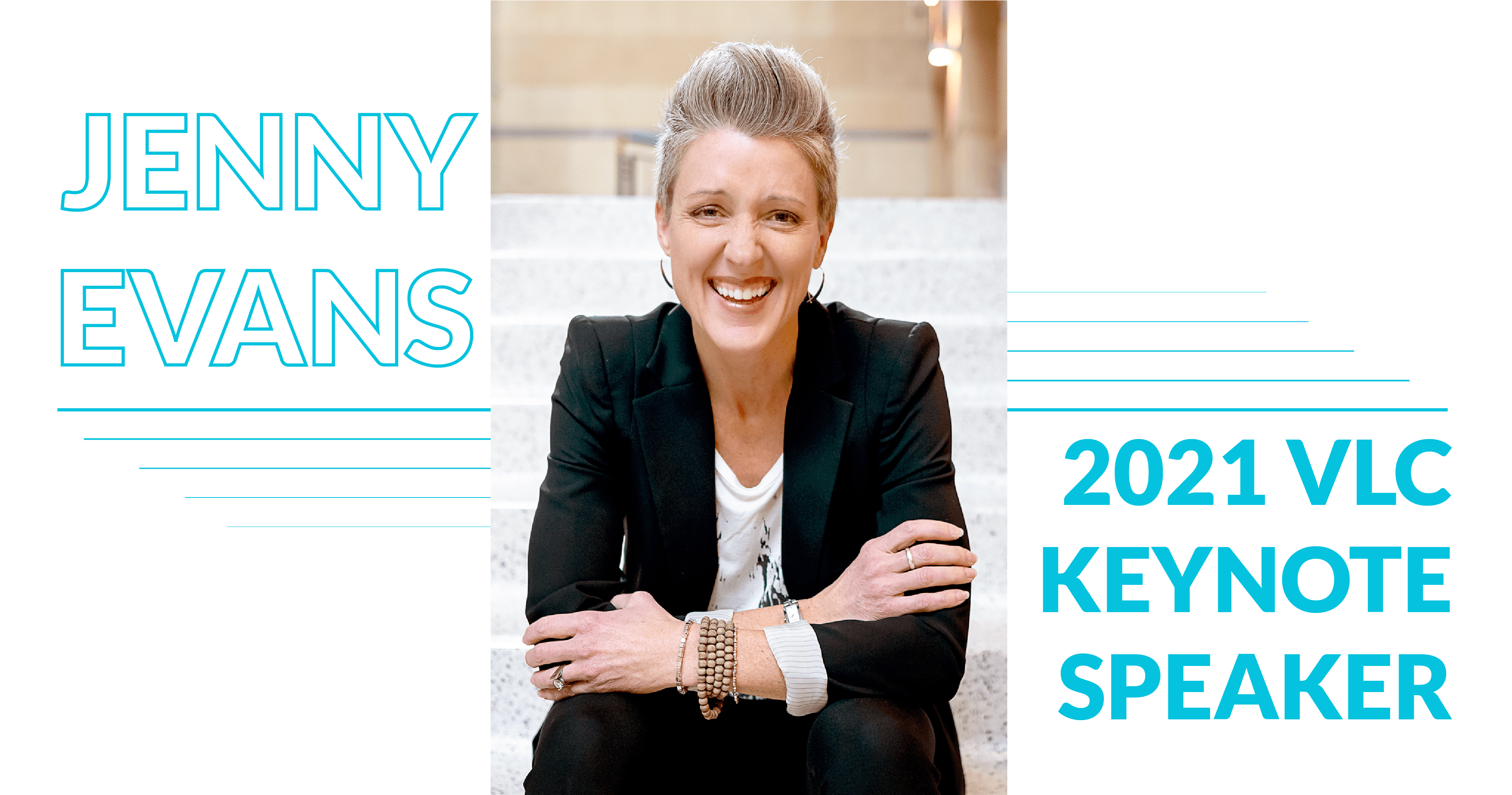It probably wasn’t on your list of resolutions or goals for 2020, but it’s one task most of us accomplished over the last 15 months: suffering burnout. And, as VLC speaker Jenny Evans put it: We’re over it.
The last 15 months have been stressful for everyone. We had to adjust to working from home and schooling children from home—often at the same time—with increasingly blurry boundaries between work life and home life. Our social outlets were limited, and we worried about the health and safety of ourselves and our loved ones—all while experiencing a worldwide pandemic and, for many, financial insecurity. The burnout is real.
“At a certain point in time the demands on our energy outstrip our capacity, and this is when we start feeling totally over it,” said Jenny. “The thing about feeling over it is that it doesn’t just happen. It typically happens slowly over time. … Little by little we start taking on more and more. Little by little we’re being asked to constantly adjust to change, and little by little we start sacrificing ways to get recovery from stress.”
During her keynote, Jenny shared with Tri Delta volunteers the importance of recovering energy and helpful strategies to go from feeling over it to feeling on it.
Micro-strategies for Recovery
While recovering energy for some people may look like lounging on the couch binging Netflix, or eating your favorite comfort food, Jenny explained that this is low-quality energy recovery. What we need is high-quality energy recovery: forms of recovery that are active, intentional and highly restorative.
She provided a set of micro-strategies that we can use to recover our energy physically, emotionally, mentally and spiritually:
Physically
- Sleep at least 7-9 hours a night
- Eat every 3-4 hours (alternating between moderately sized meals and small snacks
- Stay hydrated
- Get a massage
- Exercise
- Deep breathing
Emotionally
- Practice gratitude
- Connect with family and friends
- Journal
- Do an act of kindness
- Be present in the moment
Mentally
- Disconnect from electronic devices
- Switch gears by getting out of work mode after the work day
- Do something you’re good at or something you enjoy
- Learn something new
- Do nothing
- Meditate
Spiritually
- Read something Inspirational
- Reflect
- Spend time in nature
- Practice your values and your beliefs
- Volunteer
“High-quality recovery doesn’t take a whole lot of time,” explained Jenny. “What restores you more—3 hours of Netflix or 10 minutes of meditation?”
Purpose is the Key to Resilience
According to Jenny, the key to building resilience is finding your purpose. Research shows that people who lack clarity of purpose are more prone to anxiety and depression and are more likely to lack resilience in the face of traumatic events.
Jenny explained this as the chemistry of resilience: when we are clear and connected to our purpose, it changes our chemistry and makes our brains and our bodies more resilient.
“Purpose is essential for resilience,” said Jenny. “We are mission-specific creatures. We function best when we are on a mission that we know matters.”
Purpose creates a framework for who and what should be getting our energy and what should not. “The energy we get from our sense of purpose is one of the most powerful drivers of energy production that we possess as human beings.”
Jenny encouraged Tri Delta’s volunteers to get clear on their purpose by taking three minutes to write down their own beliefs and values.
Now, more than ever, we all have a chance to revisit and reset our priorities: “A lot of us have been in survival mode. But as we’re entering this new normal, now is the perfect time to start thinking about how do I want to live purposefully from this point forward?”
“I’m going to encourage you all to be better takers. I want you to create a sense of entitlement for yourselves. Your needs matters, your recovery matters. Put yourself on the top of your to do list. Burnout is not on a successful, confident woman’s agenda.”

